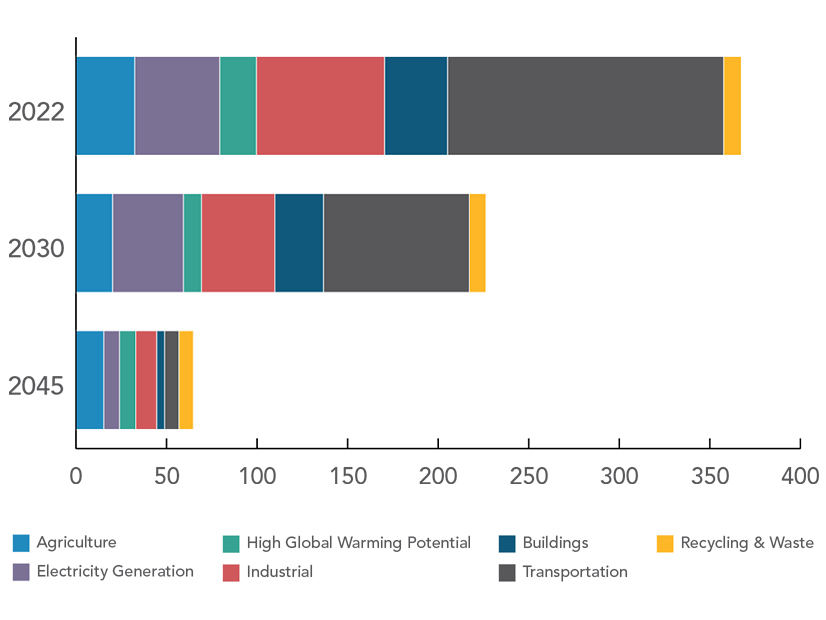
California regulators on Wednesday released an updated proposal for bringing the state to carbon neutrality by 2045, incorporating changes such as boosting offshore wind development and moving toward net zero without new natural gas-fired plants.
The new version of the climate change scoping plan is a follow-up to a draft that the California Air Resources Board released in May. The CARB board is scheduled to vote on finalizing the plan during its Dec. 15-16 meeting.
The plan would rapidly shift the state away from fossil fuels and toward renewable energy and zero-emission vehicles. It would cut greenhouse gas emissions to 85% below 1990 levels and create 4 million jobs, the agency said.
Gov. Gavin Newsom called the plan “the most ambitious set of climate goals of any jurisdiction in the world.”
“If adopted, it’ll spur an economic transformation akin to the industrial revolution,” the governor said Wednesday in a statement.
CARB revised the draft scoping plan based on changes requested by the CARB board, by the agency’s Environmental Justice Advisory Committee and by Newsom. Other changes are in response to laws passed by the state legislature this year.
The plan calls for meeting the increased demand for electrification without new gas-fired plants, while maintaining reliability. It includes the development of 20 GW of offshore wind by 2045. Both strategies were requested by Newsom in July. (See Newsom Calls for ‘Bolder’ Climate Action in Calif.)
The scoping plan sets a goal of 6 million electric heat pump appliances installed in the state by 2030. All-electric appliances would be required in new homes starting in 2026 and in new commercial buildings beginning in 2029. Appliance sales for existing homes would be 80% electric by 2030 and all electric by 2035.
The plan relies on carbon removal and sequestration, which it calls “an essential tool to achieve carbon neutrality.” Carbon capture and sequestration would be used in sectors such as electricity generation, cement production and refining.
The plan is projected to reduce greenhouse gases by 48% below 1990 levels in 2030, surpassing a mandated 40% reduction by 2030.
The scoping plan is a framework for the state to reach carbon neutrality by 2045. But further action, such as the adoption of regulations, is needed to move toward the plan’s goals.
“Hitting the targets — from the required build out of renewable resources to putting tens of millions of zero-emission cars and trucks on our roads and highways — will require implementation on a very ambitious timeline,” CARB said.
David Weiskopf, senior policy advisor with NextGen Policy, said the plan’s ambitious goals have the potential to offer major benefits.
“But until we take action, it is just a report,” Weiskopf said in a statement. “It is our job as an advocacy community to turn seemingly impossible goals into realities and to prevent outcomes that continue the legacy of environmental racism at the hands of polluting fossil fuel companies.”



